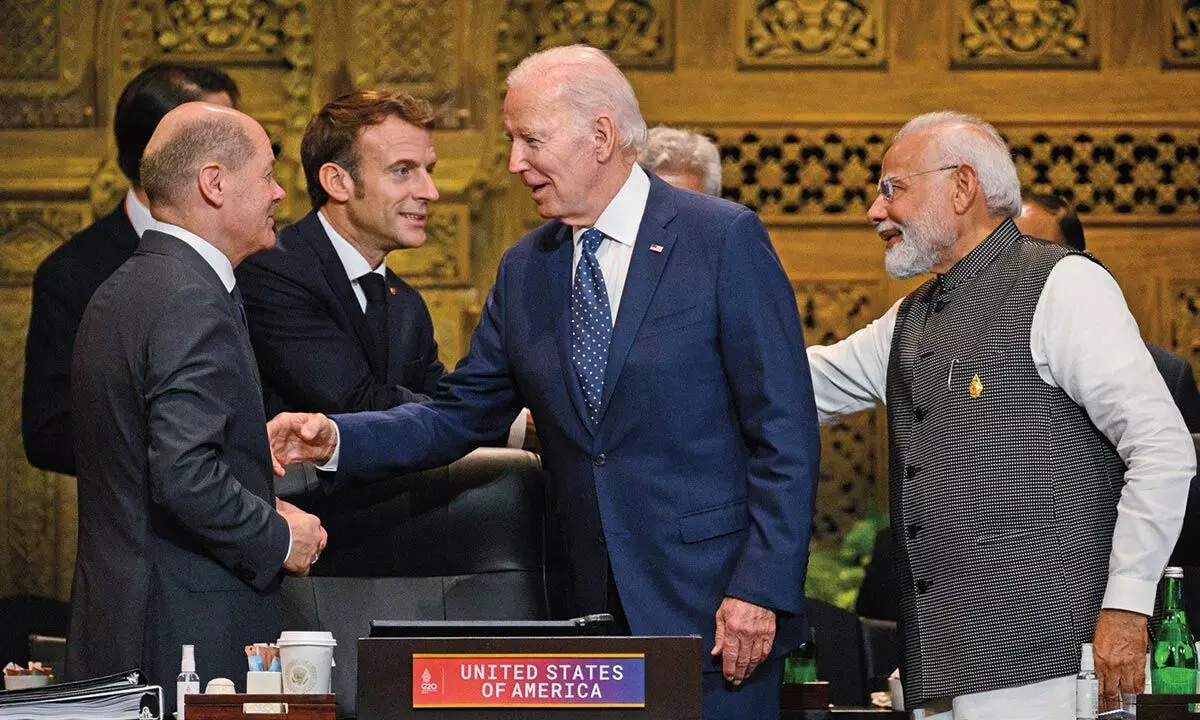India must build on goodwill generated in the west
Narendra Modi’s India usually attracts uncharitable reports and remarks from the global media, be it regarding press and religious freedom or hunger. In the circumstances, Wall Street Journal (WSJ) coming up with a couple of lengthy write-ups that are pro-India’s ruling establishment and economy within a span of two months sounds unusual.
image for illustrative purpose

Narendra Modi’s India usually attracts uncharitable reports and remarks from the global media, be it regarding press and religious freedom or hunger. In the circumstances, Wall Street Journal (WSJ) coming up with a couple of lengthy write-ups that are pro-India’s ruling establishment and economy within a span of two months sounds unusual. The first one, which appeared on March 20, was an opinion piece written by Walter Russell Mead, a prominent conservative academic. He wrote that he was “convinced that Americans and Westerners generally need to engage much more deeply with a complex and powerful movement [Hindutva].” It is ironic that Mead is a known critic of China. An article he wrote three years ago with the self-explanatory headline, ‘China Is the Real Sick Man of Asia,’ earned him Beijing’s wrath and resulted in the expulsion of three WSJ journalists. Mead is upbeat about both India as well as the BJP, which “is headed for a repeat victory in 2024.” While he is critical of the Modi regime because anti-government journalists face harassment, he prefers greater engagement with the saffron party. This is because India will play a crucial role in the American strategy in the Indo-Pacific.
On May 9, WSJ carried a long news feature, again with a self-explanatory headline, ‘China Finally Has a Rival as the World’s Factory Floor.’ India, the article said, “scored a coup with the decision by Apple to significantly expand iPhone production in India, including expediting the manufacturing of its most advanced model.” It mentioned some of the factors which resulted in the China plus strategy: rising labour costs in China; pressure from Beijing to transfer technology to Chinese competitors; Donald Trump’s tariffs on Chinese imports; Covid lockdowns from 2020 and now a push by Western governments to decouple their economies from China. It didn’t mention the general fear all over the world about China’s hegemonistic designs, though it has also made the world less enthusiastic about economic ties with China.
A western newspaper praising India would not have been conspicuous, say, a decade ago. But now, when India usually gets bad press in the west, these tend to catch the eye and attention. The second article presents a panoramic, albeit impressionistic, view of India’s manufacturing sector. It discusses not just Apple suppliers’ plans but also about Ola and Danish firm Vestas’ two new factories in Sriperumbudur. Moreover, the write-ups in WSJ do not just reflect the mood and opinions of those who write but also of Wall Street. In general, it is not just bullish about the India story but also working to sustain it. Without the approval of Wall Street bosses and western governments, Air India could never have been able to purchase 470 aircraft.
As we editorially commented earlier, Air India’s purchase acquired geopolitical, geostrategic, and geo-economic dimensions because of its sheer size.
India must build on the goodwill it has been able to create in the recent past.

